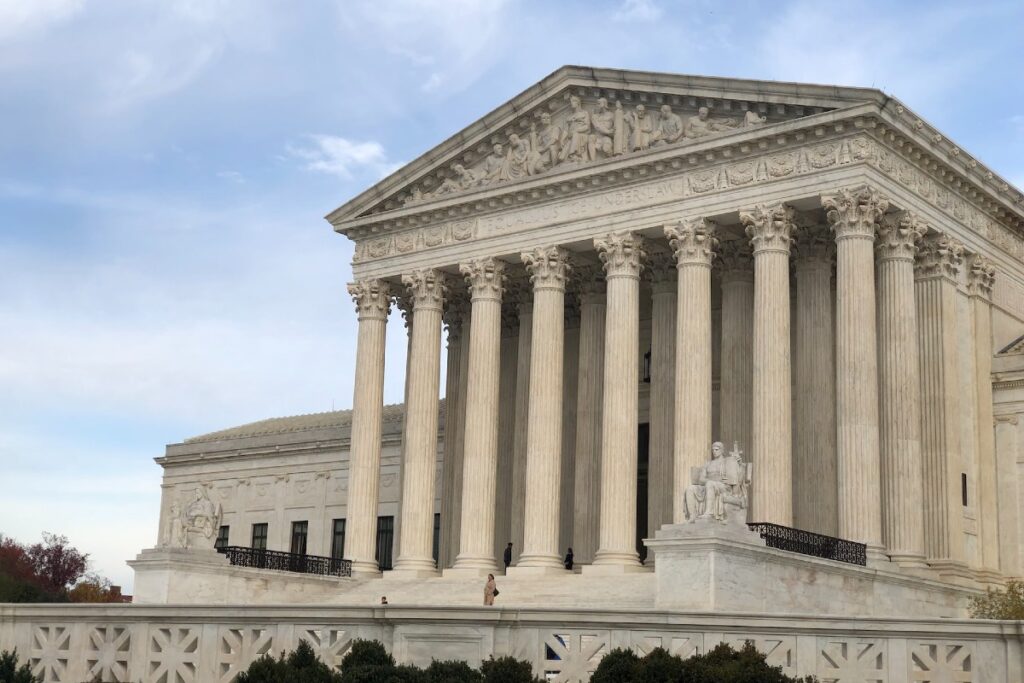
By Andy Brack | A bedrock principle of American-style jurisprudence is that justice delayed is justice denied. It’s the backbone of the right to a speedy trial to redress grievances, right wrongs and bolster the democratic process.
 The concept holds that if one can’t get a decision in a timely manner, that’s the same as having no real decision at all. It’s found in the Magna Carta (1215) and centuries of English law and politics that followed. The Rev. Martin Luther King Jr. wrote of it in his “Letter from Birmingham Jail” by noting “justice too long delayed is justice denied.”
The concept holds that if one can’t get a decision in a timely manner, that’s the same as having no real decision at all. It’s found in the Magna Carta (1215) and centuries of English law and politics that followed. The Rev. Martin Luther King Jr. wrote of it in his “Letter from Birmingham Jail” by noting “justice too long delayed is justice denied.”
Unfortunately, the U.S. Supreme Court seems to have lost sight of this legal fundamental – too busy to be bothered, too busy with politics or too busy trying to slither out of its ethical issues.
On March 28, because the high court had done nothing on a case impacting 30,000 Black South Carolinians, an appellate court said they would just have to wait.
At issue is Alexander v. S.C. NAACP, a redistricting case in which the S.C. State Conference of the NAACP and plaintiff Taiwan Scott argued the S.C. General Assembly’s December 2021 congressional map following the 2020 census was racially discriminatory.
A three-judge panel heard the case the following fall. In January 2023, it unanimously ruled the First Congressional District, which stretches from Charleston County to Beaufort County, was an illegal, racial gerrymandered district that disenfranchised 30,000 Black voters. The judges gave time to the state to draw new lines so elections could be held with a new map.
But the state appealed, as was its right. In October 2023, the U.S. Supreme Court heard oral arguments. Since then? Crickets. So with filing for the 2024 elections set to close April 1, a three-judge district court panel on March 28 essentially said things were moving too slowly and this year’s First District congressional election needed to take place under the current disputed lines.
Which is wrong. And sad. And interesting, since the First District has been one of the most competitive districts in the country – and with the Republican Party having a razor-thin majority, the GOP establishment has a lot of interest in using the old map, not something new that might not favor the incumbent, U.S. Rep. Nancy Mace, R-S.C.
“It’s a ridiculous decision to say, on one hand, that the maps were drawn for racial purposes and, on the other hand, to say we’re going to use them anyway,” said the Rev. Joseph Darby of Charleston, a former top official with the state NAACP. “That’s as strangely American as things get.”
Allen Chaney, legal director for the ACLU of South Carolina, blasted state lawmakers for delaying action by appealing the case: “They manipulated the appellate process to wring out an extra election on unconstitutional maps. I hope voters are paying attention.”
Taiwan Scott, the individual plaintiff in the case, said in a statement that the fight for justice would continue: “The people of our state and our country deserve more than suppression and discriminatory practices. What we deserve is the right to a fair process and an equal say.”
The awkward decision didn’t escape the notice of the two Democrats running to replace Mace.
Michael B. Moore, whose ancestor Robert Smalls was a five-term member of Congress during Reconstruction between 1874 and 1887, said, “Regardless of the congressional map, this race is all about connecting with folks in South Carolina’s coastal communities — and offering them an honest, commonsense alternative to Nancy Mace’s attention-seeking antics and political extremism.”
His primary challenger, Mount Pleasant lawyer Mac Deford, said he was disheartened a decision hasn’t yet been made, but noted: “This is the only congressional district in South Carolina that rejected Donald Trump, and I’ve been fortunate to gain widespread support across political divides, even securing contributions from those who previously supported Nancy Mace.”
If the Supreme Court can make emergency rulings for prisoners on death row, why can’t it set up a process to be quicker on issues related to a dying democratic process?
Andy Brack is editor and publisher of Statehouse Report and the Charleston City Paper. Have a comment? Send to: feedback@statehousereport.com.



I wonder, is Congressional District 6 discriminatory against blacks voting rights. What if blacks want a candidate other than James Clyburn to represent them? How do they get a representative other than Clyburn when Mr Clyburn himself gerrymandered his own congressional district and blacks in his district who want a different representative can’t get that to happen because Clyburn scooped up every community with a black majority population? How can they change the stalemate when Clyburn keeps calling racism when a portion of his segregated congressional district want to leave?
Michael P. Moore’s ancestor, Robert Smalls, was a Republican representative and politician. How many black republicans are being represented by their party in exclusive and segregated black congressional districts? How do black republicans get the kind of representation that the opposing party receives? Who is gerrymandering?